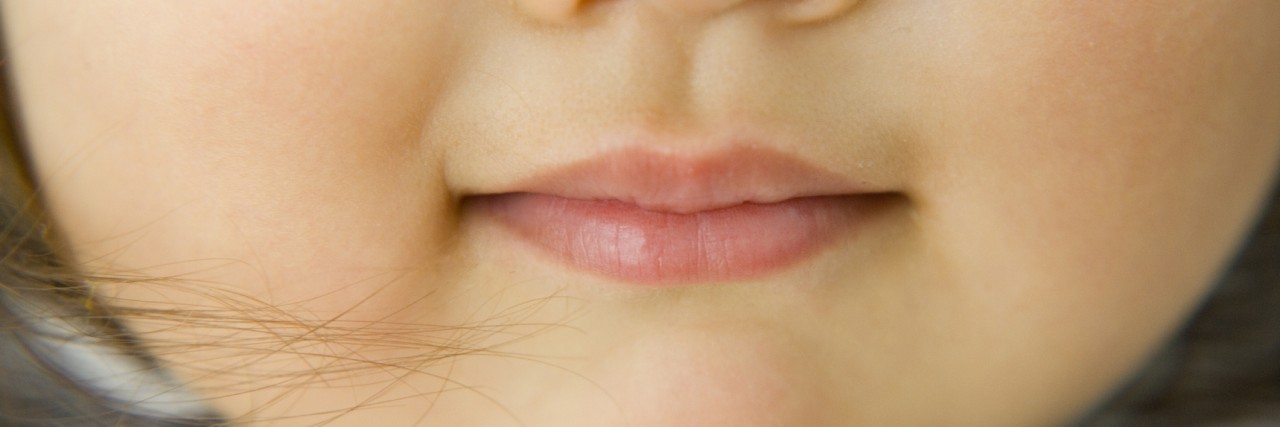When I was rooting through my desk, I stumbled upon a few pieces of Jess’s art work. I’m not sure why I kept them. Even though they had her name, it wasn’t her work. It’s bittersweet to look at them now. I’ve always wondered how the aides felt about me hanging their artwork on my fridge. Did it make them feel like they were doing their job by showing her coloring within the lines? Did they think I would not realize the only part Jess had was sitting with them? Did they think they were sparing me by not sending home a paper covered in scribble?
Art from school with Jess’s name, but the work of her aide.
There was also a time when I would speak for Jess. When people asked her questions, I felt awkward in the silence and would answer for her. Maybe I was trying to cover up that she wasn’t talking, or maybe it was because I didn’t want to hear the stream of curious, never-ending questions. At the time, I felt ashamed that I was speaking for her. It felt wrong, but I was afraid others might see her as “less.” Once people see what they perceive to be “shortcomings,” the next stage is often dismissal.
I’m afraid my speaking for Jess was more damaging than the aides completing her art. Once we start speaking for people, it can lead to talking about them in front of them. In our case, the problem at the time was Jess didn’t have a reliable way to communicate, so I spoke for her. This sometimes led to making her choices. Sure, we learned to speak “Jessie” and interpret her wants and needs, but this was often foreign to everyone outside of our inner circle. All this did was keep her world small.
The other day, there was a conversation among parents asking if they spoke for their children. They all did. I’m guilty of this, and I understand why, but I don’t believe it has to be this way. As good as I thought I was for meeting Jess’s basic needs based on her gestures, I feel I was missing the mark. I believed Jess had so much more to say. My intention is not to disrespect the families that advocate for their children this way, but to have them ask, “What if my child was able to use his/her own voice?”
If you are waiting for school to tell you when your child is ready for augmentative and alternative communication (AAC), be prepared to wait. Not all schools, not all speech language pathology programs are so forward-thinking. If you feel your child is too old, think again. Jess didn’t find the right AAC till she was 21. When Jess was younger, we used low-tech AACs, and they were not very effective for her. At the age of 5 she was deemed not a candidate for an AAC device, but when she was re-evaluated a couple of years later, the assessment came back different. Over the years, we’ve used at least a half-dozen AAC approaches, but nothing met her specific needs. The point is, we kissed a lot of frogs before finding her prince. You know, when you meet the right one, they can help you be the best person you can be, and you may be able to find “happily ever after.” After all this time, I’ve learned I may be my daughter’s advocate, but I am not her voice. She has one of her own. October is International AAC Awareness Month. Share the love!
Image via Thinkstock.
Follow this journey on You Don’t Say AAC.
We want to hear your story. Become a Mighty contributor here.

